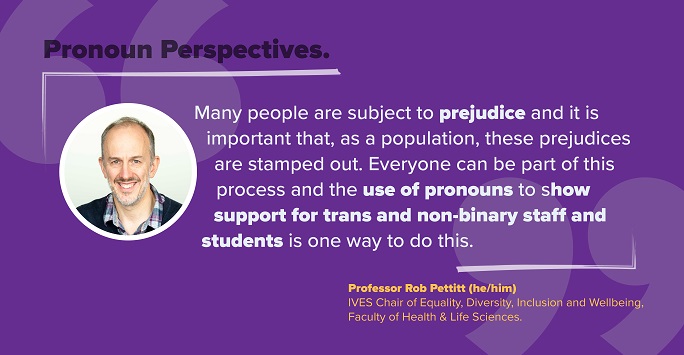
Prof Rob Pettitt
Pronouns: He/Him. Many people are subject to prejudice and it is important that as a population, these prejudices are stamped out. Everyone can be part of this process and the use pronouns to show trans and non-binary staff and students is one way to do this.

Dr Lesley Iwanejko
Pronouns: She/Her. I have started to use pronouns on my emails and during Zoom meetings. I had not realised until recently how important it is to find a means of ensuring everyone uses the correct pronoun when addressing others. It is little effort for potentially enormous gain and an important step to make sure everyone feels included.

Emma Carter-Brown
Pronouns: She/Her. I share my pronouns as I want to normalise it as a practice and to signal openly that I welcome and respect others sharing their pronouns with me.
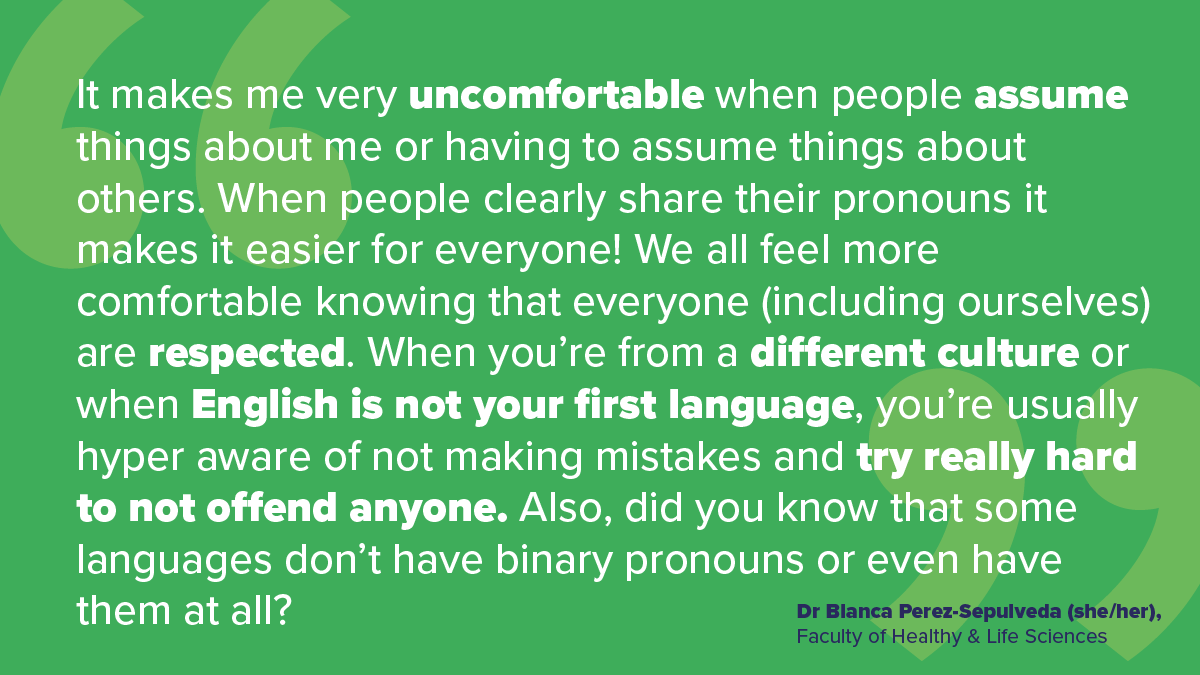
Dr Blanca Perez-Sepulveda
Pronouns: She/Her. It makes me very uncomfortable when people assume things about me or having to assume things about others. When people clearly share their pronouns it makes it easier for everyone! We all feel more comfortable knowing that everyone (including ourselves) are respected. When you’re from a different culture or when English is not your first language, you’re usually hyper aware of not making mistakes and try really hard to not offend anyone. Also, did you know that some languages don’t have binary pronouns or even have them at all?
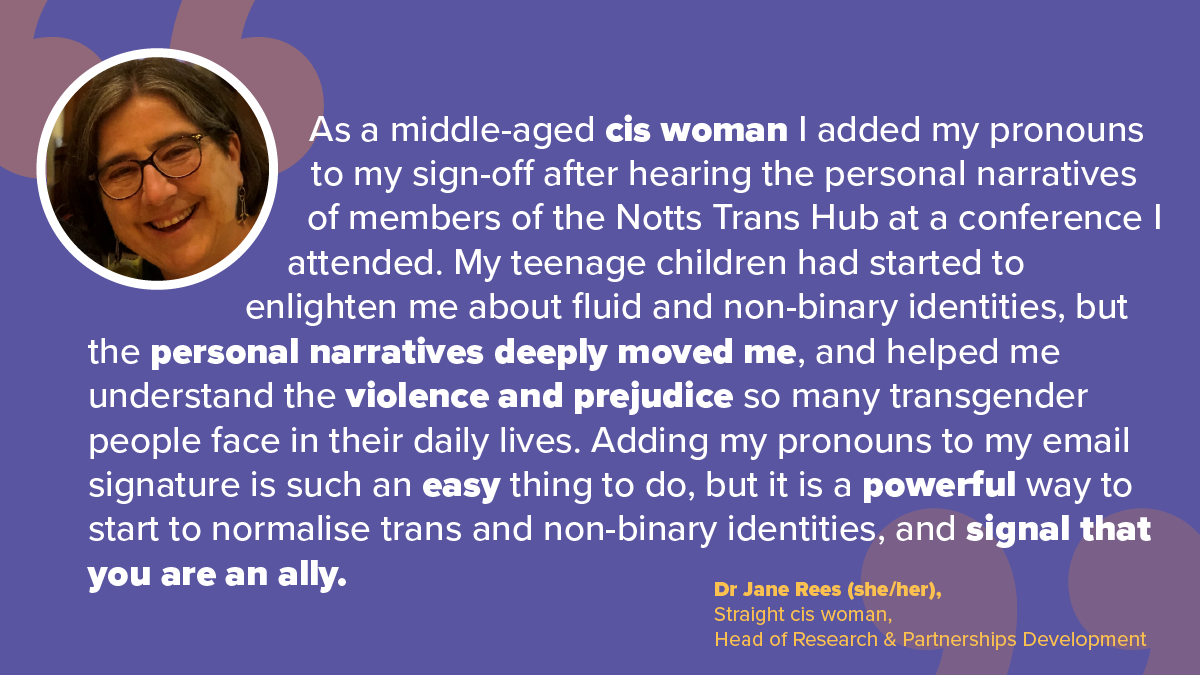
Dr Jane Rees
Pronouns: She/Her. As a middle-aged cis woman I added my pronouns to my sign-off after hearing the personal narratives of members of the Notts Trans Hub at a conference I attended. My teenage children had started to enlighten me about fluid and non-binary identities, but the personal narratives deeply moved me, and helped me understand the violence and prejudice so many transgender people face in their daily lives. Adding my pronouns to my email signature is such an easy thing to do, but it is a powerful way to start to normalise trans and non-binary identities, and signal that you are an ally.
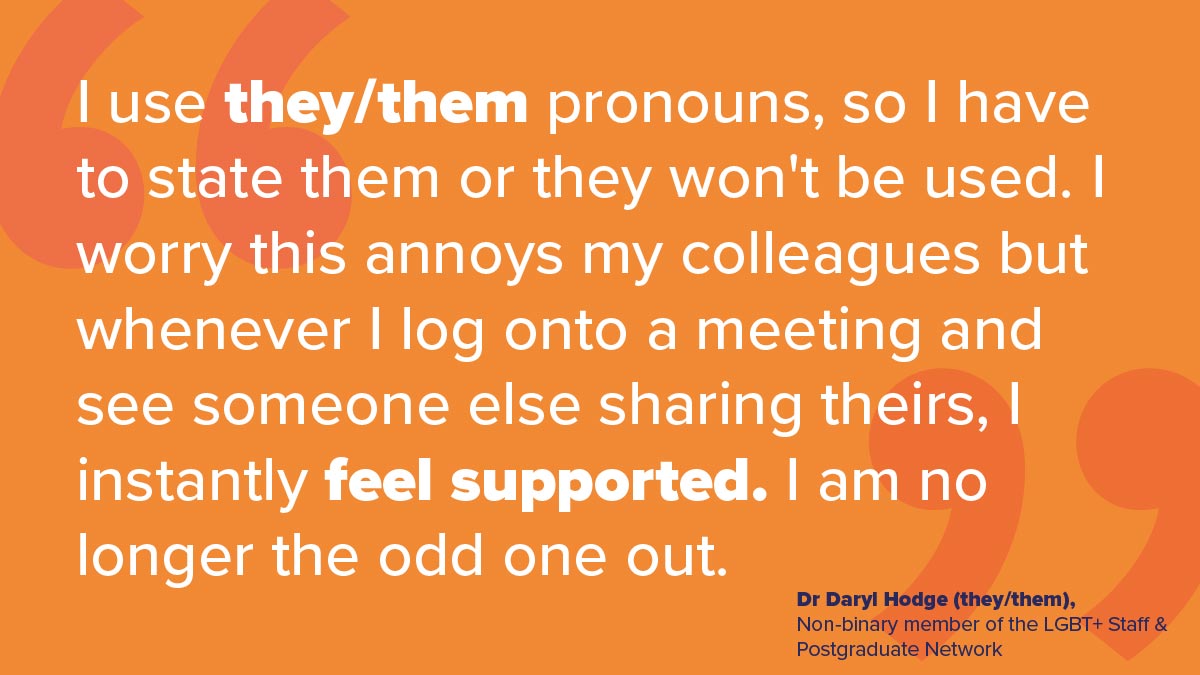
Dr Daryl Hodge
Pronouns: They/Them. I use they/them pronouns so I have to state them or they won't be used. I worry this annoys my colleagues but whenever I log onto a meeting see someone else sharing theirs, I instantly feel supported. I am no longer the odd one out.
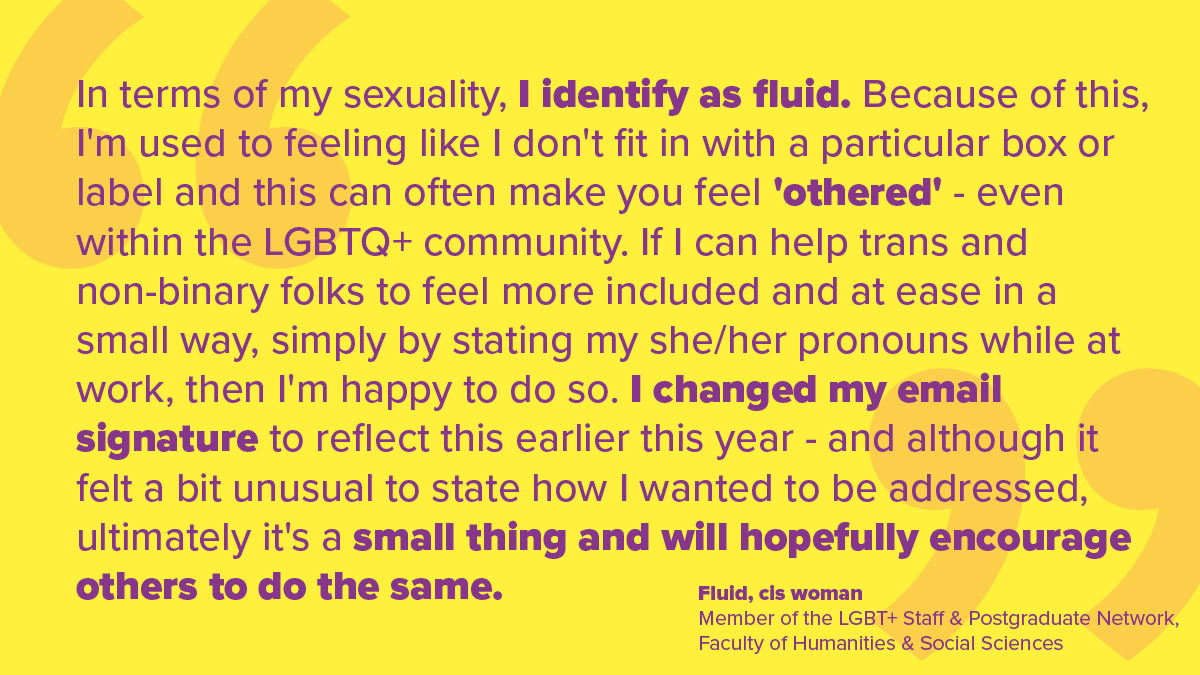
Fluid, cis woman
Pronouns: She/Her. In terms of my sexuality, I identify as fluid. Because of this, I'm used to feeling like I don't fit in with a particular box or label and this can often make you feel 'othered' - even within the LGBTQ+ community. If I can help trans and non-binary folks to feel more included and at ease in a small way, simply by stating my she/her pronouns while at work, then I'm happy to do so. I changed my email signature to reflect this earlier this year - and although it felt a bit unusual to state how I wanted to be addressed, ultimately it's a small thing and will hopefully encourage others to do the same.
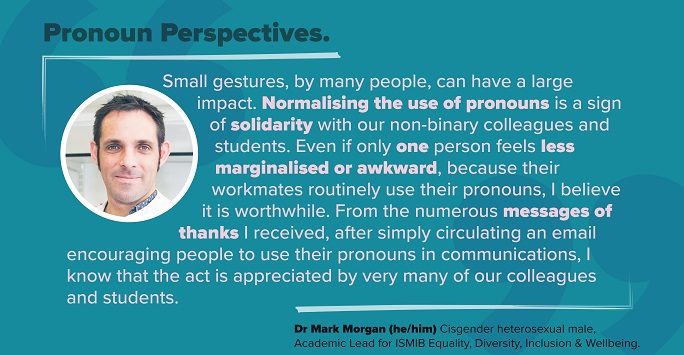
Dr Mark Morgan
Pronouns: He/Him. Small gestures by many people can have a large impact. Normalising the use of pronouns is a sign of solidarity with our non-binary colleageus and students. Even if only one person feels less marginalised or awkward, because their workmates routinely use their pronouns I believe it is worthwhile. From the numerous messages of thanks I've received after simply circulating an email encouraging people to use their pronouns in communications, I know that the act is appreciated by very many of our colleagues and students.
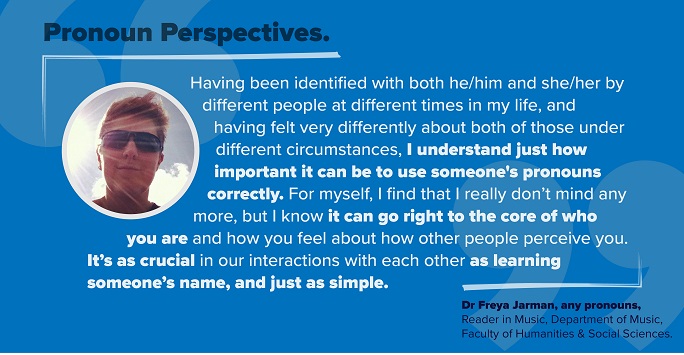
Dr Freya Jarman
Pronouns: any pronouns. Having been identified with both he/him and she/her by different people at different times in my life and having felt very differently about both of those under different circumstances, I understand just how important it can be to use someone's pronouns correctly. For myself, I find that I really don't mind anymore, but I know it can go right to the core of who you are and how you feel about how other people perceive you. It's as crucial in our interactions with each other as learning someone's name, and just as simple.
